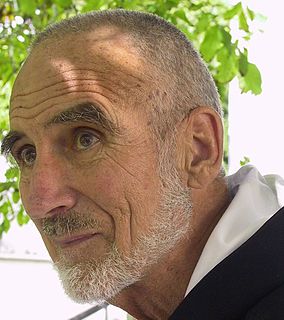A Quote by Edward Coke
No man can be a compleat Lawyer by universalitie of knowledge without experience in particular cases, nor by bare experience without universalitie of knowledge; he must be both speculative & active, for the science of the laws, I assure you, must joyne hands with experience.
Related Quotes
Hire and promote first on the basis of integrity; second, motivation; third, capacity; fourth, understanding; fifth, knowledge; and last and least, experience. Without integrity, motivation is dangerous; without motivation, capacity is impotent; without capacity, understanding is limited; without understanding, knowledge is meaningless; without knowledge, experience is blind. Experience is easy to provide and quickly put to good use by people with all the other qualities.
I should say that the useful results of science had accumulated, but that there had been no accumulation of knowledge, strictly speaking, for posterity; for knowledge is to be acquired only by a corresponding experience. How can we know what we are told merely? Each man can interpret another's experience only by his own.
The totality of our so-called knowledge or beliefs, from the most casual matters of geography and history to the profoundest laws of atomic physics or even of pure mathematics and logic, is a man-made fabric which impinges on experience only along the edges. Or, to change the figure, total science is like a field of force whose boundary conditions are experience.
The Christian religion, [Pascal] claims, teaches two truths: that there is a God who men are capable of knowing, and that there is an element of corruption in men that renders them unworthy of God. Knowledge of God without knowledge of man's wretchedness begets pride, and knowledge of man's wretchedness without knowledge of God begets despair, but knowledge of Jesus Christ furnishes man knowledge of both simultaneously.
Many persons think that by hoarding money they are gaining safety for themselves. If money is your only hope for independence, you will never have it. The only real security that a man can have in this world is a reserve of knowledge, experience, and ability. Without these qualities, money is practically useless. The security even of money depends on knowledge, experience, and ability. If productive ideas are displaced by destructive ideas, economic life suffers.
Knowledge signifies things known. Where there are no things known, there is no knowledge. Where there are no things to be known, there can be no knowledge. We have observed that every science, that is, every branch of knowledge, is compounded of certain facts, of which our sensations furnish the evidence. Where no such evidence is supplied, we are without data; we are without first premises; and when, without these, we attempt to build up a science, we do as those who raise edifices without foundations. And what do such builders construct? Castles in the air.
Genius is neither learned nor acquired. It is knowing without experience. It is risking without fear of failure. It is perception without touch. It is understanding without research. It is certainty without proof. It is ability without practice. It is invention without limitations. It is imagination without boundaries. It is creativity without constraints. It is...extraordinary intelligence!


































